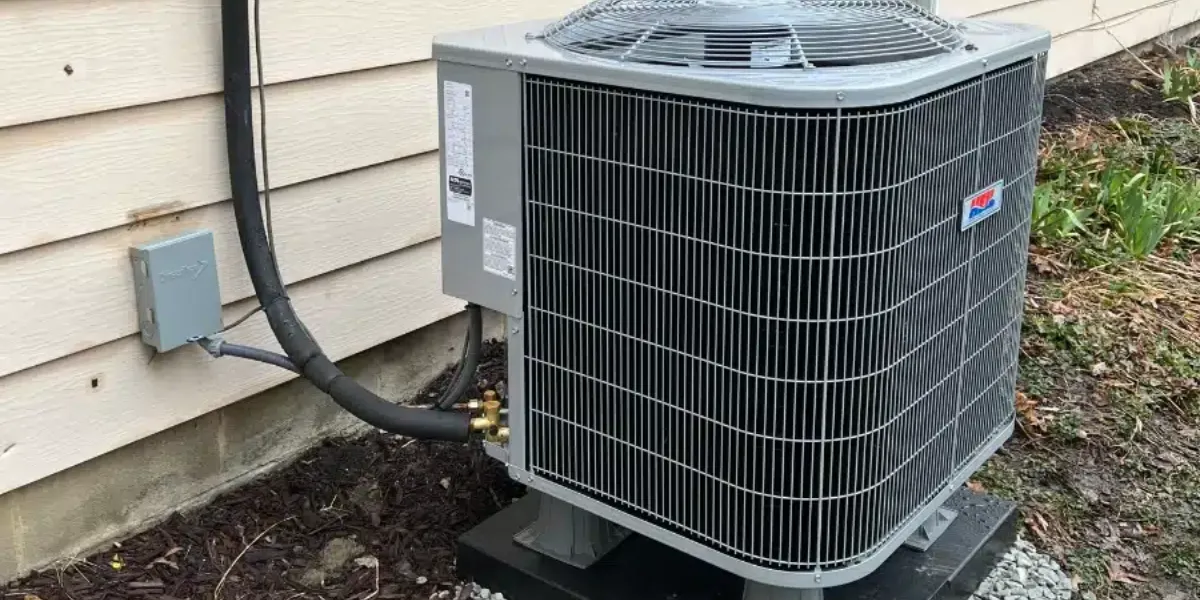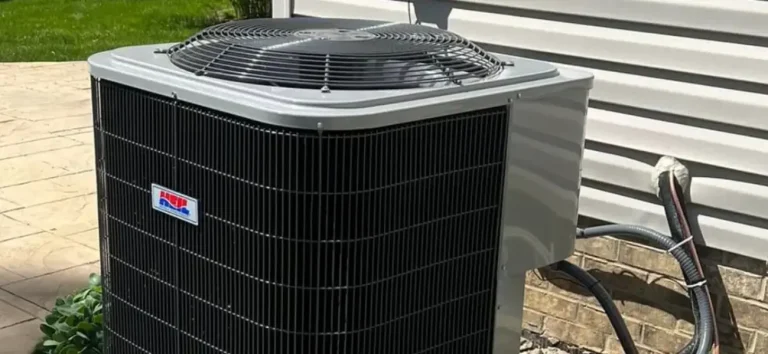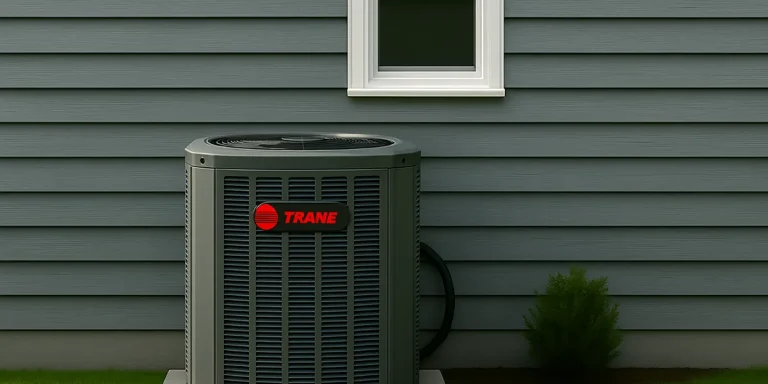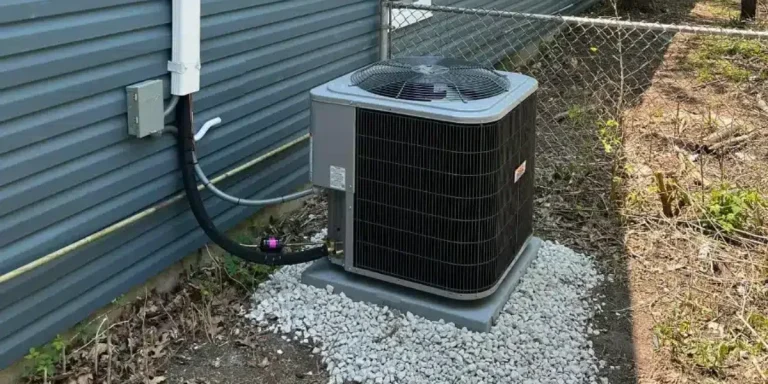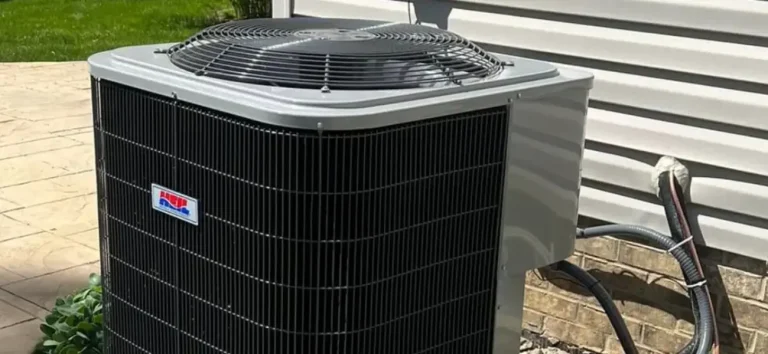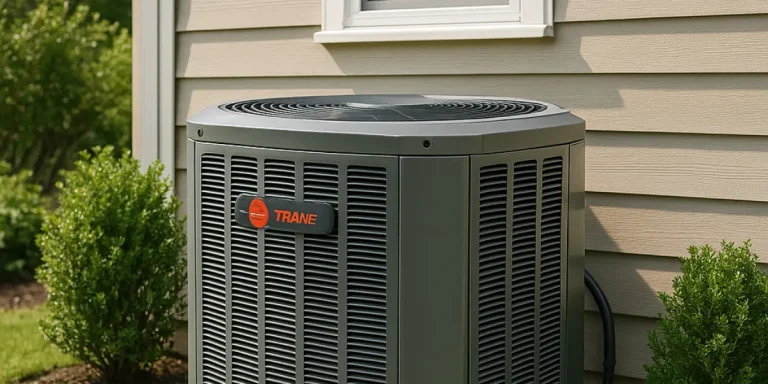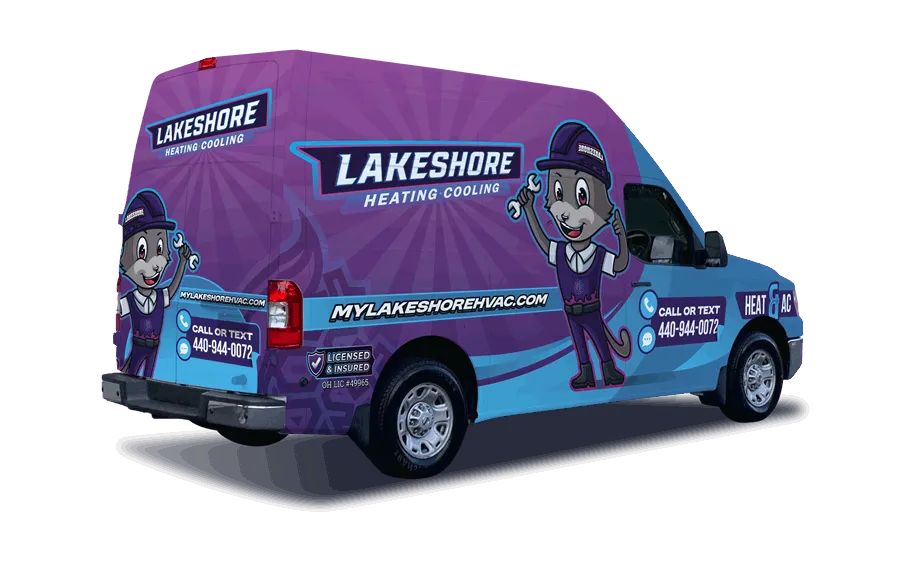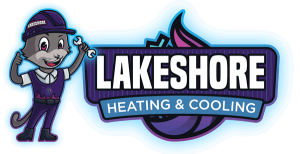What to Do When Your AC Smells Musty or Like Mold
If you’ve noticed a musty or moldy smell coming from your air conditioner, it’s more than just unpleasant—it’s a sign that something inside your system isn’t working as it should. Ignoring it can lead to poor indoor air quality, health concerns, and expensive HVAC repairs. Fortunately, there are specific steps you can take to fix the problem and keep your home safe and comfortable.
At Lakeshore Heating & Cooling, we help homeowners in Eastlake and surrounding areas eliminate odors, improve air quality, and keep their AC systems running efficiently.
Why Your AC Might Smell Musty or Moldy
When your air conditioner is running, it’s not just cooling the air—it’s also removing humidity from your home. That moisture collects on the evaporator coil and drains away through a condensate line. But when something disrupts this process, moisture can linger inside your HVAC system, creating the perfect environment for mold and mildew to grow.
The result? A musty or “dirty sock” smell that blows through your vents and affects the air in your entire home.
If you're noticing this in your home in Eastlake, Willoughby, or Mentor, you're not alone. Ohio’s hot and humid summers make mold buildup inside AC systems more common than many homeowners realize.
Common causes of musty or moldy AC odors:
-
- Clogged or Dirty Air Filters
A clogged filter traps moisture, dust, and debris—all of which can lead to mold growth if not changed regularly. This not only causes odors but reduces airflow and cooling performance. - A Full or Clogged Condensate Drain Line
The drain line is responsible for removing condensation from your unit. If it's clogged with algae or debris, water can back up into the system and lead to mold or mildew in the drain pan. - Moisture Buildup in the Evaporator Coil or Drain Pan
If condensation lingers on the coil or doesn’t drain properly, mold can grow on the metal fins or in the pan beneath the coil. This is a common source of persistent AC odors. - Mold Growth in Ductwork
Damp, poorly sealed, or uninsulated ductwork can harbor mold—especially if there has been water damage or high indoor humidity. Once mold settles in your ducts, every time your AC runs, those spores can circulate through your home. - High Indoor Humidity Levels
Homes in Lake County that lack proper ventilation or moisture control often suffer from high humidity. If indoor humidity stays above 60%, mold growth becomes a real concern—even in well-maintained systems.
- Clogged or Dirty Air Filters
At Lakeshore Heating & Cooling, we diagnose and resolve these issues as part of our AC maintenance, drain cleaning, duct inspections, and indoor air quality services. Whether the cause is a clogged filter or mold in your ducts, our experienced technicians will get to the root of the problem and restore clean, fresh air to your home.
How to Eliminate Musty AC Odors: 5 Key Steps
Getting rid of that musty or moldy smell from your air conditioner isn’t just about masking odors—it’s about identifying and fixing the underlying cause. These steps will help you restore clean, healthy air throughout your home and protect your HVAC system from long-term damage.
Step 1: Check and Replace the Air Filter
A dirty or neglected air filter is one of the most common causes of unpleasant smells in your AC system. Filters trap dust, debris, and moisture—and when they’re clogged, they become a breeding ground for mildew and bacteria.
What to do:
-
-
- Locate your HVAC air filter (typically behind the return vent or inside the indoor air handler)
- Inspect it for dirt, discoloration, or clogging
- Replace it if it looks gray, dusty, or hasn’t been changed in the past 30–60 days
- During heavy cooling seasons in Eastlake and Mentor, check monthly for buildup
-
Why it matters:
Replacing your air filter regularly improves indoor air quality, reduces system strain, and minimizes moisture retention that can lead to mold growth. Lakeshore Heating & Cooling includes air filter replacements as part of our routine AC maintenance services.
Step 2: Inspect the Condensate Drain Line
Your air conditioner removes moisture from the air as it cools your home. That water drains through a small PVC pipe called the condensate drain line. If the line gets clogged—due to algae, debris, or mold—moisture backs up and creates a perfect mold habitat.
Signs your drain line may be clogged:
-
-
- Musty odor when your AC runs
- Standing water near the indoor unit
- Visible algae or mold near the drain opening
-
What to do:
-
-
- Turn off your system to prevent water damage
- Attach a wet/dry vacuum to the outdoor drain outlet and run it for 5–10 minutes
- Pour a 50/50 mix of vinegar and water into the drain access port to break down buildup
- If the clog persists, call Lakeshore Heating & Cooling for professional AC drainage repair and maintenance
-
Step 3: Have Your Evaporator Coil Cleaned
The evaporator coil is constantly exposed to moisture during cooling. If dirt or dust builds up on the coil, mold and mildew can take hold—especially if airflow is restricted.
Why evaporator coil cleaning is essential:
-
-
- Removes hidden mold and organic buildup
- Restores cooling capacity and airflow
- Prevents foul odors from recirculating
- Extends the life of your cooling components
-
This isn’t typically a DIY job. Our experienced technicians offer coil cleaning and full AC tune-ups to ensure your system stays clean, efficient, and odor-free throughout the summer.
Step 4: Evaluate and Clean Your Ductwork
If your ducts are contaminated with mold, bacteria, or dust, every time your HVAC system kicks on, it spreads that musty smell throughout your home. This is common in older homes around Painesville, Willowick, and Concord Township, especially those with moisture issues or poor insulation.
What to look for:
-
-
- Mold growth around vents or on duct grilles
- Uneven cooling and airflow between rooms
- Odors present in multiple areas of your home
-
What to do:
-
-
- Schedule a professional duct inspection and cleaning
- Seal and insulate ducts in attics, basements, or crawlspaces
- Ask about adding UV air purifiers or whole-home filtration systems for long-term indoor air quality improvements
-
Step 5: Control Indoor Humidity Levels
Even if your AC is functioning properly, high humidity in your home can create an environment where mold and mildew thrive. Maintaining indoor humidity between 30% and 50% is ideal.
Tips to reduce humidity:
-
-
- Use a whole-home dehumidifier, especially in basements or high-humidity rooms
- Run exhaust fans during and after showers and cooking
- Seal gaps around windows, doors, and attic access to prevent humid air intrusion
- Avoid setting your thermostat too low, which can cause coils to freeze and humidity to rise
-
Lakeshore Heating & Cooling installs HVAC-integrated dehumidifiers to help you regulate moisture and maintain balanced comfort throughout your home in Lake County.
If the smell persists after following these steps, it may be time for a more in-depth inspection—or even consider upgrading to a new, high-efficiency AC installation that better manages moisture and airflow. Our team is here to help you breathe easy again.
When to Call Lakeshore Heating & Cooling
If your AC still smells musty after replacing the filter and checking for obvious issues, it’s time to bring in a professional. Mold can hide deep in components you can’t access—and the longer it lingers, the more damage it can cause.
We offer:
-
- Expert air conditioner diagnostics and odor removal
- Professional coil and duct cleaning services
- Indoor air quality upgrades like UV germicidal lights and whole-home filtration
- Honest advice on repair vs. AC replacement if your system is aging or failing
Proudly Serving Lake County and Beyond
Lakeshore Heating & Cooling provides fast, reliable service to homeowners in:
-
- Eastlake
- Willoughby
- Mentor
- Painesville
- Willowick
- Wickliffe
- Kirtland
- Concord Township
- Fairport Harbor
- And surrounding Lake County communities
Breathe Easy—Call Us for AC Service Today
Eliminate Musty Smells and Restore Comfort
Don’t let moldy odors linger in your home. Whether you need a quick filter change or a full AC inspection, Lakeshore Heating & Cooling is here to help. We’ll pinpoint the source of the problem and provide expert, long-term solutions to protect your indoor air and comfort.
Call today or request a free estimate. We’re proud to serve families throughout Eastlake and Lake County with dependable HVAC repairs, maintenance, and indoor air quality services.

